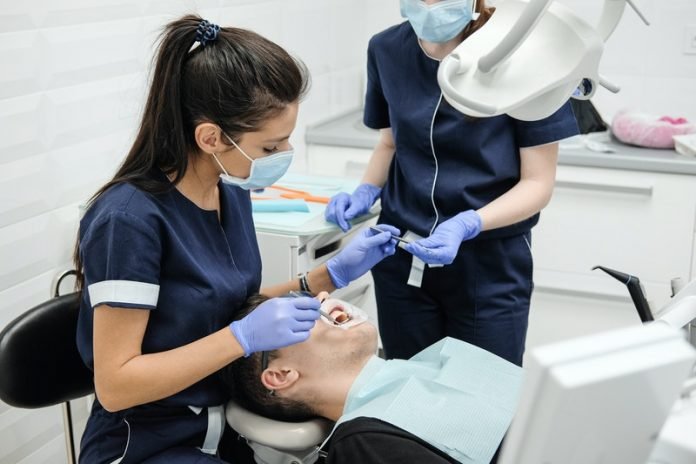
Opioids are a type of medication used to relieve pain.
They require a prescription from your dentist or doctor, and include drugs such as hydrocodone, oxycodone, morphine, and codeine. Opioids also include illegal drugs such as heroin.
To ease discomfort that can result from some dental procedures, such as tooth extraction, gum and other dental surgery, or placement of dental implants, dentists may prescribe medications for pain relief, including opioids.
Commonly prescribed opioid medications for relief of dental pain include hydrocodone, oxycodone, and acetaminophen with codeine.
Prescription opioids can be used to treat moderate-to-severe pain and are often prescribed following surgery or injury.
But because they can cause feelings of well being and happiness as well as pain relief, they can be misused.
For example, taking these types of medications for a longer period of time or at a higher dose than prescribed puts you at risk for becoming dependent on opioid medications.
And, when misused, opioids can lead to addiction, overdose, or death. (See NIH’s National Institute on Drug Abuse information on opioids.)
Moreover, recent research shows that patients who fill an opioid prescription after a dental procedure have a higher overdose risk compared to those who don’t receive opioids.
Overdose risk is also higher in family members of those patients, especially their children.
It is important to know there are over-the-counter, non-opioid medications—acetaminophen and non-steroidal anti-inflammatory drugs (NSAIDs) such as ibuprofen—that can be just as effective for managing most dental pain.
Talk with your dentist about which medications may be right for you.
Be sure to talk with your dentist about how to manage pain after a dental procedure:
Ask your dentist if there are other ways besides opioids to relieve your pain.
If your dentist prescribes an opioid pain medication, you should:
Let your dentist know about any other medications you are currently taking, and also whether you or others in your family have had any problems with substance use, such as with alcohol, prescription medications, or illicit drugs.
Ask about the risks of taking the medication.
Ask how to take the medicine and how long you should take it.
Be sure to take the medicine according to the directions you have received.
Never use alcohol when taking an opioid medication.
Store the medication in a safe place out of sight and out of reach of children, teens, and guests, preferably in a locked cabinet.
Dispose of any unused or expired medication as soon as possible. The U.S. Food and Drug Administration offers instructions on how to dispose of any unused medication.
If you care about tooth health, please read studies about toothpaste that may help prevent heart attack, stroke by detecting plaque, and findings of mouthwash that may increase your risk of tooth damage.
For more information about tooth health, please see recent studies about this type of pickle that can help prevent tooth cavities, and results showing that stopping tooth decay before it starts—without killing bacteria.
Source: NIDCR



